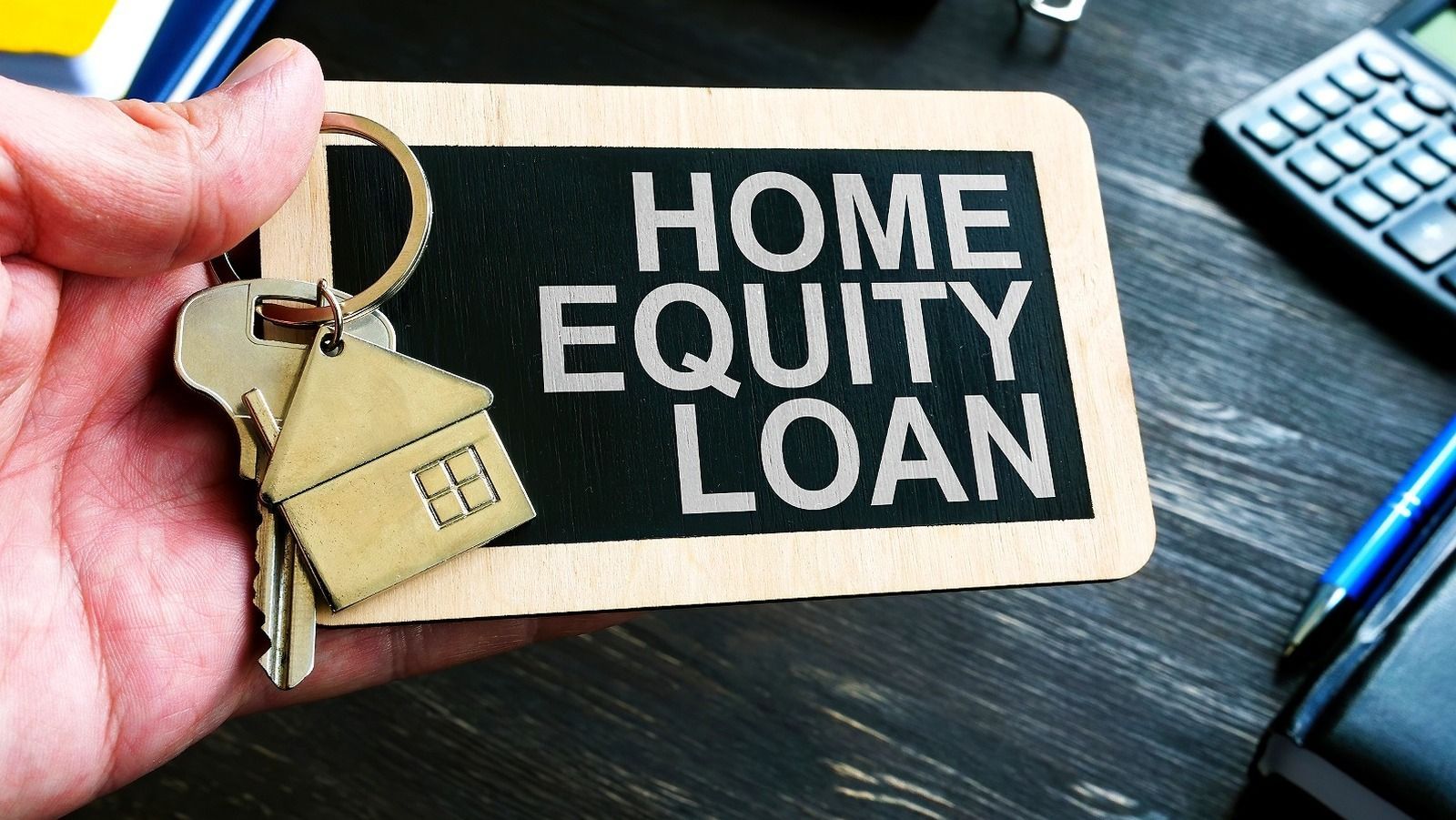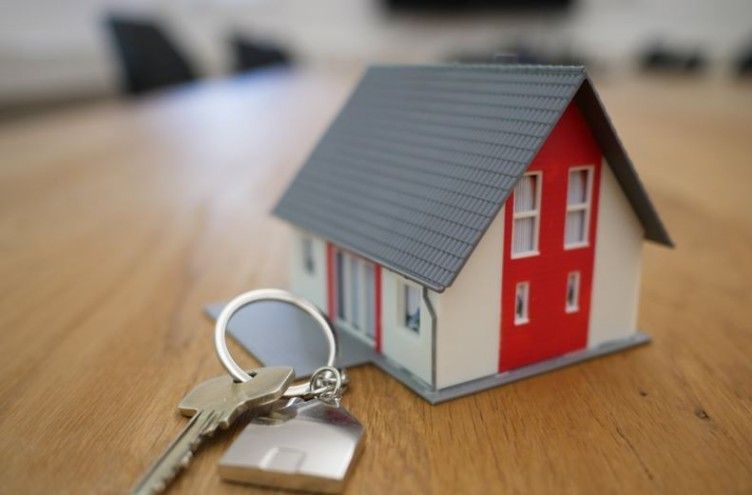How much does home insurance cost?
Ralph DiBugnara • November 7, 2024

By Ralph Dibugnara November 7, 2024
By Brian OConnell
Home insurance seems to be a low priority for new homeowners, but adopting that mindset could be a serious mistake. Why? Because of costs related to home insurance and the reasons homeowners need insurance in the first place. You're going to want to protect yourself and your assets.
Do you think you need home insurance? If so, you're going to want to evaluate your personal finances and determine how to budget for home insurance payments. Before you get out your wallet, here's what you need to know.
How much does home insurance cost?
Price-wise, new home buyers can expect to tack on $1,200 to the cost of a new home, in the form of proper home insurance.
That cost, however, depends on several key factors including:
Age and price of the home
Amount of cash put down via a down payment
State or municipality where the home is located
Since real estate is primarily about location, where you buy your new home largely dictates how deeply you’ll have to dig in your pocket for home insurance payments.
For example, homeowners in Louisiana face the highest home insurance rates in the U.S., at $1,958 (on average) per year. Compare that to $677 in Oregon or $692 in Utah.
RECORD-LOW MORTGAGE RATES WON'T LAST — REFINANCE BEFORE IT'S TOO LATE
What does a typical homeowners policy cover?
No matter where you live home insurance shares some basic commonalities.
"Good home insurance policies will mainly cover two types of liabilities - loss of personal property as well as liability for any other damages," said Ralph DiBugnara, president at Home Qualified, a digital platform for home buyers, sellers, and investors. "Yet every carrier has some common standards as well as items and scenarios that they deem to be high risk or low risk."
That’s why it’s important a shopper should get at least three quotes because costs and coverages will vary from carrier to carrier. The idea is for shoppers to compare different rates from different companies, and the best way to accomplish that is by going online.
To get the best home insurance policy at the best price, DiBugnara advised asking – and answering – three key questions before signing on the dotted line:
How much insurance coverage do you actually need?
What exactly does that coverage protect me from happening?
How much of a deductible should I take and still be safe?
"Answering these questions correctly can help you avoid major issues in case of disaster or damage to your home," he said.
HOW TO FIND THE BEST MORTGAGE RATES AND FASTEST CLOSINGS
What type of home insurance coverage do you need?
Some home insurance experts say homeowners put too much emphasis on monthly payments and not enough on getting the right coverage. In that scenario, costs escalate in the form of high out-of-pocket expenses when a disaster strikes and the house incurs major damage.
"Just like auto insurance, there can be great variance in the cost from one home insurance company to another," said Jeff Zander, founder of Zander Insurance, in Nashville, Tenn. "In many cases, people have paid less attention to their home insurance cost since it is often included in the escrow payment portion of the mortgage."
"For most people, a home is their greatest asset, but the bank is only concerned about getting them their money and not about any of their contents, personal property, or liability risks that arise from owning a home," Zander said.
Homeowners looking for quality home insurance at a decent price also need to make a distinction between covering select risks or covering all risks. Fortunately, home insurance policies have you covered.
"There are really two types of home insurance policies," Zander noted.
A "named perils" policy: This lists the perils that are covered. "If the peril is not listed, then it is not covered," he said.
An all-risk policy: "This is the most preferred homeowner insurance policy since it lists the exclusions," Zander added. "Basically, if it is not excluded then it is covered. An all-risk policy is a much broader policy form and includes better protection."
The takeaway on getting good home insurance for the best price? Think value and not cost.
"Don’t cut corners when purchasing home insurance," said Orlando Frasca, an insurance specialist at Rogers Insurance Services in Danville, Cal. "Consumers often look at the lowest price as opposed to what they are getting for that price, only to find out certain coverages they thought they have were not included on the policy."
SHARE ON
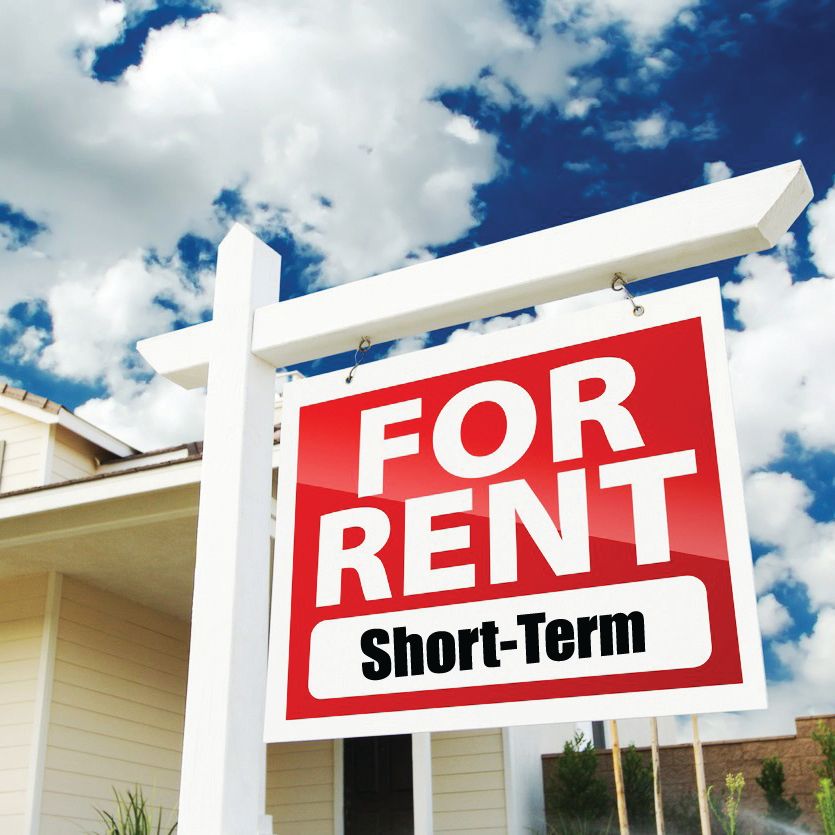
By: Ralph Dibugnara May 1, 2025 By: Paul Centopani April 30, 2025 Mortgage rate forecast for next week (May 5-9) After last week's huge jump, mortgage rates drifted slightly downwards. The average 30-year fixed rate mortgage (FRM) dipped to 6.81% on Apr. 24 from 6.83% on Apr. 17, according to Freddie Mac. It marks 14 straight weeks below 7% for the average 30-year FRM. “Headlines rather than economic data have been the dominant drivers of day-to-day volatility in the stock, bond, and mortgage markets. Despite the noise, average mortgage rates ended up little changed compared to the previous week. The economic situation is rapidly evolving, making it hard to predict the direction of mortgage rates with any conviction," said Kara Ng, senior economist at Zillow Home Loans. Will mortgage rates go down in May? "The market awaits some clarity on economic policies — particularly tariff-induced trade wars — before rates can move strongly in either direction." -Rick Sharga, CEO at CJ Patrick Company Mortgage rates fluctuated significantly in 2023, with the average 30-year fixed rate going as low as 6.09% and as high as 7.79%, according to Freddie Mac. That range narrowed in 2024, with a spread of 6.08% to 7.22%. With the economy probably heading into a recession, we may have already seen the peak of this rate cycle. But if inflation rises, mortgage rates could uptrend. Of course, interest rates are driven by many factors and notoriously volatile, so they could change direction any given week. Experts from Realtor.com, First American, and others weigh in on whether 30-year mortgage rates will climb, fall, or level off in May. Expert mortgage rate predictions for May Ralph DiBugnara, founder at Home Qualified Prediction: Rates will decrease There has been much anticipation of lower mortgage rates, but we have yet to see any consistency of that happening. The stock market has been down, along with inflation and consumer spending. In most markets, these factors would signal downward mortgage rates. But currently there is lack of confidence in the Fed lowering and or changing their current stance. The results have been a higher 10-Year Treasury which, in turn, influenced higher mortgage rates. In May I believe we will see some slow movement lower, as some positive economic data this month could push the average 30-year fixed mortgage rates down to 6.75% and 6.375% for the 15-year fixed. Also, ARM loans have emerged again as options with lower rates that should be considered. The 7/1 Arm should land about 5.875%. Hannah Jones, senior economic research analyst at Realtor.com Prediction: Rates will decrease "Mortgage rates surged in April following the announcement of widespread tariffs early in the month. While rates remained elevated for much of the month, they began to decline toward the end, hinting at a potential return to pre-announcement levels. Looking ahead to May, rates are expected to ease further as markets find more stability. However, upcoming economic data—particularly the jobs report and inflation data—could spark renewed volatility if results deviate from expectations. The recent movement in mortgage rates reflect broader economic uncertainty, which has left many households concerned about job security and financial stability. A sustained, downward trend in rates could help rebuild consumer confidence and encourage more buyers to re-enter the housing market." Sam Williamson, senior economist at First American Prediction: Rates will moderate “Mortgage rates are expected to remain in the mid-to-upper 6% range in May, amid ongoing worries over tariff-induced inflation and a softening in both business and consumer sentiment. Most market watchers anticipate that the Federal Reserve will hold rates steady at May’s Federal Open Market Committee meeting. Although the Fed does not set mortgage rates directly, its policy decisions affect borrowing costs indirectly through their impact on bond yields. "Significant attention will be focused on Fed Chairman Jerome Powell’s remarks during the FOMC press conference. Any comments made by the Chairman signaling a potential shift from the Fed’s current “wait-and-see” approach could sway bond yields: a more hawkish tone regarding inflation risks is likely to push rates higher, while dovish comments emphasizing employment concerns might ease them. Moreover, despite a seemingly resilient labor market amid ongoing federal restructuring efforts and slowed hiring amid policy uncertainty, any hint of weakness in the upcoming jobs report could increase recession fears—likely leading to lower bond yields and, in turn, reduced mortgage rates.” Diane Yu, CEO and co-founder at TidalWave Prediction: Rates will moderate "Mortgage rates, whether they linger between 6.4% and 6.6% or shift in May 2025, are merely one factor in a complex equation. Inflation, Federal Reserve actions, and global uncertainties undeniably influence rates, but true opportunity for homebuyers hinges on market dynamics, personal financial stability, and timing. Affordability isn’t dictated solely by rate fluctuations-it’s shaped by income growth, escalating home prices, and individual debt capacity. For households planning their next move, this means looking beyond rate forecasts and building resilience to market volatility." Mortgage interest rates forecast next 90 days As inflation ran rampant in 2022, the Federal Reserve took action to bring it down and that led to the average 30-year fixed-rate mortgage spiking in 2023. With inflation gradually cooling, the Fed made three rate cuts in 2024 (September, November, and December). Heading into 2025, many experts believed mortgage interest rates would gradually descend. Of course, rates could rise on any given week or if another global event causes widespread uncertainty in the economy. Mortgage rate predictions for 2025 The 30-year fixed-rate mortgage averaged 6.81% as of Apr. 24, according to Freddie Mac. Four of the five major housing authorities we looked at predict 2025's second quarter average to below that. Wells Fargo sits at the low end of the group, projecting the average 30-year fixed interest rate to settle at 6.35% for Q2. Meanwhile, the Mortgage Bankers Association had the highest forecast of 7%. Housing Authority 30-Year Mortgage Rate Forecast (Q2 2025) Wells Fargo 6.35% National Association of Realtors 6.40% Fannie Mae 6.50% National Association of Home Builders 6.66% Mortgage Bankers Association 7.00% Average Prediction 6.58% Current mortgage interest rate trends Mortgage rates decreased from the previous week. The average 30-year fixed rate declined to 6.81% on April 24 from 6.83% on Apr. 17. Meanwhile, the average 15-year fixed mortgage rate went to 5.94% from 6.03%. Stay on top of mortgage rate trends Get updates on mortgage rate news, low and no-down payment mortgage options, and more! Top of Form Subscribe Bottom of Form Month Average 30-Year Fixed Rate April 2024 6.99% May 2024 7.06% June 2024 6.92% July 2024 6.85% August 2024 6.50% September 2024 6.18% October 2024 6.43% November 2024 6.81% December 2024 6.72% January 2025 6.96% February 2025 6.84% March 2025 6.65% April 2025 6.73% Source: Freddie Mac After hitting record-low territory in 2020 and 2021, mortgage rates climbed to a 23-year high in 2023 before descending somewhat in 2024. Many experts and industry authorities believe they will follow a downward trajectory into 2025. Whatever happens, interest rates are still below historical averages. Dating back to April 1971, the fixed 30-year interest rate averaged around 7.8%, according to Freddie Mac. So if you haven’t locked a rate yet, don’t lose too much sleep over it. You can still get a good deal, historically speaking — especially if you’re a borrower with strong credit. Just make sure you shop around to find the best lender and lowest rate for your unique situation. Which mortgage loan is best? The best mortgage for you depends on your financial situation and your goals. For instance, if you want to buy a high-priced home and you have great credit, a jumbo loan is your best bet. Jumbo mortgages allow loan amounts above conforming loan limits, which max out at $806,500 in most parts of the U.S. On the other hand, if you’re a veteran or service member, a VA loan is almost always the right choice. VA loans are backed by the U.S. Department of Veterans Affairs. They provide ultra-low rates and never charge private mortgage insurance (PMI). But you need an eligible service history to qualify. Conforming loans and FHA loans (those backed by the Federal Housing Administration) are great low-down-payment options. Conforming loans allow as little as 3% down with FICO scores starting at 620. FHA loans are even more lenient about credit; home buyers can often qualify with a score of 580 or higher, and a less-than-perfect credit history might not disqualify you. Finally, consider a USDA loan if you want to buy or refinance real estate in a rural area. USDA loans have below-market rates — similar to VA — and reduced mortgage insurance costs. The catch? You need to live in a ‘rural’ area and have moderate or low income to be USDA-eligible. Mortgage rate strategies for May 2025 Mortgage rates displayed their famous volatility throughout 2024. Fed cuts in September, November, and December, with the potential for more in 2025 provide optimism for descending rates. Previously, the central bank held off on a rate hike at eight consecutive meetings, preferring to see if the economy would keep cooling organically. They finally deemed inflation's downtrend as organic and made its first cuts since 2020. Find your lowest mortgage rate. Start here (May 1st, 2025) However, ongoing inflation battles forced the Fed to hold in January and March. As always, the committee said it would adjust its policies as necessary — which could mean additional cuts or possibly none at all. Here are just a few strategies to keep in mind if you’re mortgage shopping in the coming months. Be ready to move quickly Indecision can lead to failure or missed opportunities. That holds true in home buying as well. Although the housing market is becoming more balanced than the recent past, it still favors sellers. Prospective borrowers should take the lessons learned from the last few years and apply them now even though conditions are less extreme. "Taking too long to decide to make an offer can lead to paying more for the home at best and at worst to losing out on it entirely. Buyers should get pre-approved (not pre-qualified) for their mortgage, so that the seller has some certainty about the deal closing. And be ready to close quickly — a long escrow period will put you at a disadvantage. And it's definitely not a bad idea to work with a real estate agent who has access to "coming soon" properties, which can give a buyer a little bit of a head start competing for the limited number of homes available," said Rick Sharga. If mortgage rates continue on a downward trajectory, more and more buyers will likely enter the market after being priced out on the sidelines. Being decisive (and prepared) should only play to your advantage. Shopping around isn't only for the holidays Since interest rates can vary drastically from day to day and from lender to lender, failing to shop around likely leads to money lost. Lenders charge different rates for different levels of credit scores. And while there are ways to negotiate a lower mortgage rate, the easiest is to get multiple quotes from multiple lenders and leverage them against each other. “For potential home buyers, it’s important to get quotes from multiple lenders for a mortgage, as rates can vary dramatically, especially during such a volatile period," said Odeta Kushi. As the mortgage market slows due to lessened demand, lenders will be more eager for business. While missing out on the rock-bottom rates of 2020 and 2021 may sting, there’s always a way to use the market to your advantage. How to shop for interest rates Rate shopping doesn’t just mean looking at the lowest rates advertised online because those aren’t available to everyone. Typically, those are offered to borrowers with great credit who can put a down payment of 20% or more. The rate lenders actually offer depends on: Your credit score and credit history Your personal finances Your down payment (if buying a home) Your home equity (if refinancing) Your loan-to-value ratio (LTV) Your debt-to-income ratio (DTI) To figure out what rate a lender can offer you based on those factors, you have to fill out a loan application. Lenders will check your credit and verify your income and debts, then give you a ‘real’ rate quote based on your financial situation. You should get three to five of these quotes at a minimum, then compare them to find the best offer. Look for the lowest rate, but also pay attention to your annual percentage rate (APR), estimated closing costs, and ‘discount points’ — extra fees charged upfront to lower your rate. This might sound like a lot of work. But you can shop for mortgage rates in under a day if you put your mind to it. And shaving just a few basis points off your rate can save you thousands. Compare mortgage and refinance rates. Start here (May 1st, 2025) Mortgage interest rate FAQ What are current mortgage rates? Current mortgage rates are averaging 6.81% for a 30-year fixed-rate loan and 5.94% for a 15-year fixed-rate loan, according to Freddie Mac’s latest weekly rate survey. Your individual rate could be higher or lower than the average depending on your credit score, down payment, and the lender you choose to work with, among other factors. Will mortgage rates go down next week? Mortgage rates could decrease next week (May 5-9, 2025) if the mortgage market takes a cautious approach to a possible recession. However, rates could rise if lenders account for the Federal Reserve taking measures to counteract inflation or if a global event brings economic uncertainty. Will mortgage interest rates go down in 2025? If inflation continues to dissipate and the economy cools or goes into a recession, it's likely mortgage rates will decrease in 2025. Although, it's important to remember that interest rates are notoriously volatile and are driven by many factors, so they can rise during any given week. Will mortgage interest rates go up in 2025? Mortgage rates may rise in 2025. High inflation, strong demand in the housing market, and policy changes by the Federal Reserve in 2022 and 2023 all pushed rates higher. However, if the U.S. does indeed enter a recession, mortgage rates could come down. What is the lowest mortgage rate right now? Freddie Mac is now citing average 30-year rates in the 7% range. If you can find a rate in the 5s or 6s, you’re in a very good position. Remember that rates vary a lot by borrower. Those with perfect credit and large down payments may get below-average interest rates, while poor-credit borrowers and those with non-QM loans could see much higher rates. You’ll need to get pre-approved for a mortgage to know your exact rate. Will there be a housing crash? For the most part, industry experts do not expect the housing market to crash in 2025. Yes, home prices are over-inflated. But many of the risk factors that led to the 2008 crash are not present in today’s market. Low inventory and massive buyer demand should keep the market propped up. Plus, mortgage lending practices are much safer than they used to be. That means there’s not a subprime mortgage crisis waiting in the wings. What is the lowest mortgage rate ever? At the time of this writing, the lowest 30-year mortgage rate ever was 2.65%. That’s according to Freddie Mac’s Primary Mortgage Market Survey, the most widely used benchmark for current mortgage interest rates. Should I lock my rate now or wait? Locking your rate is a personal decision. You should do what’s right for your situation rather than trying to time the market. If you’re buying a home, the right time to lock a rate is after you’ve secured a purchase agreement and shopped for your best mortgage deal. If you’re refinancing, you should make sure you compare offers from at least three to five lenders before locking a rate. That said, rates are rising. So the sooner you can lock in today’s market, the better. Is now a good time to refinance? That depends on your situation. It’s a good time to refinance if your current mortgage rate is above market rates and you could lower your monthly mortgage payment. It might also be good to refinance if you can switch from an adjustable-rate mortgage to a low fixed-rate mortgage; refinance to get rid of FHA mortgage insurance; or switch to a short-term 10- or 15-year mortgage to pay off your loan early. Is it worth refinancing for 1 percent? It’s often worth refinancing for 1 percentage point, as this can yield significant savings on your mortgage payments and total interest payments. Just make sure your refinance savings justify your closing costs. You can use a mortgage calculator or speak with a loan officer to crunch the numbers. How do I shop for mortgage rates? Start by choosing a list of three to five mortgage lenders that you’re interested in. Look for lenders with low advertised rates, great customer service scores, and recommendations from friends, family, or a real estate agent. Then get pre-approved by those lenders to see what rates and fees they can offer you. Compare your offers (Loan Estimates) to find the best overall deal for the loan type you want. What are today’s mortgage rates? Mortgage rates are rising, but borrowers can almost always find a better deal by shopping around. Connect with a mortgage lender to find out exactly what rate you qualify for.

By: Ralph Dibugnara April 28, 2025 Youtube link: https://youtube.com/shorts/oudfX2KCZuo?si=wQdJ1R6fR-Wpb4ll The U.S. real estate market is facing major challenges — and it's not what most people expect. According to industry insights shared recently, the number one thing the housing market desperately needs is inventory. Despite fluctuating mortgage rates and ongoing economic uncertainty, buyer demand remains strong. People still want to purchase homes, but there simply aren’t enough properties available to meet the demand. This shortage continues to push prices higher, making affordability an even bigger issue. The current lack of inventory stems from multiple factors: many homeowners are "rate locked," meaning they’re reluctant to sell because they don't want to lose their historically low mortgage rates. On top of that, new home construction hasn’t kept pace with the growing population, further tightening supply. If the market hopes to balance itself, more inventory must come online — whether through new builds, incentivizing homeowners to sell, or creative solutions from policymakers. Without an increase in available homes, the mismatch between supply and demand will persist, keeping housing prices elevated and competition fierce.
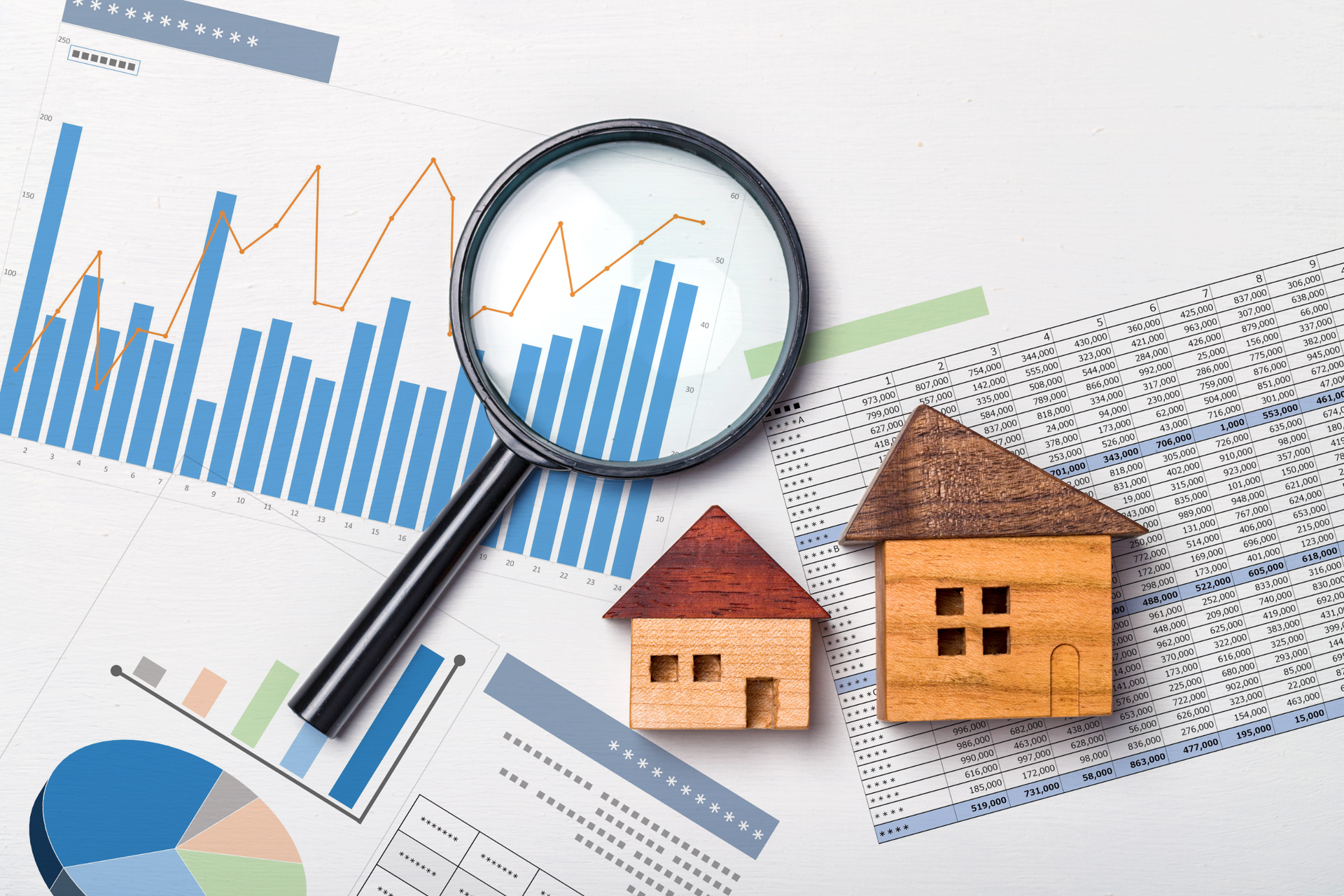
A home equity line of credit (HELOC) can give you a way to turn your home's equity into a line of credit you can use when needed. HELOCs have several key benefits that make them a solid borrowing choice in today's market. They operate like a revolving line of credit, giving homeowners flexibility they wouldn't have with a lump sum of equity borrowed. And the average interest rate is 8.02%, making them one of the most affordable ways to borrow money right now. Like any financial decision, though, opening a HELOC takes some planning. What will you use it for? How much equity do you have? How long do you want your draw period to be? These questions are instrumental in finding the right HELOC for what you need. Additionally, it helps to understand how a HELOC works so you know what to expect once you open it. A HELOC uses a variable rate, which means your HELOC interest rate — and HELOC payment — can change monthly. Additionally, any withdrawals from your HELOC during your draw period trigger interest-only monthly payments until you pay off what you borrowed or your repayment period kicks in. Another thing to consider is that a HELOC is considered a secured funding source. This means your home will serve as collateral. But does that result in a lien being putting on your house? That's what we'll explore below. Does a HELOC put a lien on your house? Yes, a HELOC puts a lien on your home. A lien is a legal term referring to a creditor having a right to ownership of what you're borrowing against, says Ralph DiBugnara, president of mortgage broker Home Qualified. "A lien, basically, is a legally binding placeholder on the title of your home," DiBugnara says. "It's a record [that says] if you ever sell the house or refinance the house that the lienholder that you hold a debt to has to be paid off." A lien typically gives your HELOC lender the right to start the foreclosure process if you're at least 120 days late on your payment, DiBugnara says. However, banks usually won't go straight to foreclosure because it's a tedious process, so they typically take you through three steps before foreclosure begins, he says: A payment agreement in which you agree to pay your back payments through a lump-sum payment at the end of your repayment period. A HELOC modification in which your lender adjusts the terms of your HELOC to make monthly payments more affordable. A forbearance agreement in which you promise to make your late payments or foreclosure will start. If your home goes into foreclosure, your credit score will likely be impacted and the foreclosure will stay on your credit report for seven years, according to the Consumer Financial Protection Bureau (CFPB). A lower credit score may result in higher borrowing costs for you in the future, which means the foreclosure process can be a financial burden long after it's over. But if you make your payments on time, you generally don't have to worry about any lender liens on your home. How to use a HELOC responsibly To avoid your lien being enforced and, potentially, losing your home to the lender, it helps to know some simple guidelines for HELOC borrowing. First, make sure you have a purpose for opening a HELOC. Using it for the right reasons, like home repairs and renovations that can result in a tax deduction, is key. After you identify the purpose for your line of credit, decide on a HELOC amount that fits the purpose. Borrowing significantly more money than you need could lead to overspending and increase the chances you fall behind on your payments. And, avoid taking out a HELOC to cover everyday costs like groceries and gas, DiBugnara says. "If you're taking out a HELOC to pay your daily expenses, you may put yourself in a position to have a problem," he says. Using a HELOC to cover everyday costs is a sign that you might be in financial trouble, which means you could be in jeopardy of missing HELOC payments and, possibly, going into foreclosure. If you find yourself in that position, an unsecured lending option like a personal loan or credit card may be a better option since you don't have to offer collateral to get funding. The bottom line HELOC lenders typically place a lien on your home's title if you open a line of credit with them. The lien gives your lender the right to foreclose on your home if you default on your HELOC payments. However, most lenders want to avoid the foreclosure process and will offer you alternative options before it gets to that point. Borrowing a HELOC responsibly, both in the decisions you make before you open one and how you handle your spending after it's open, can help you avoid ever having your HELOC lender's lien become an issue.
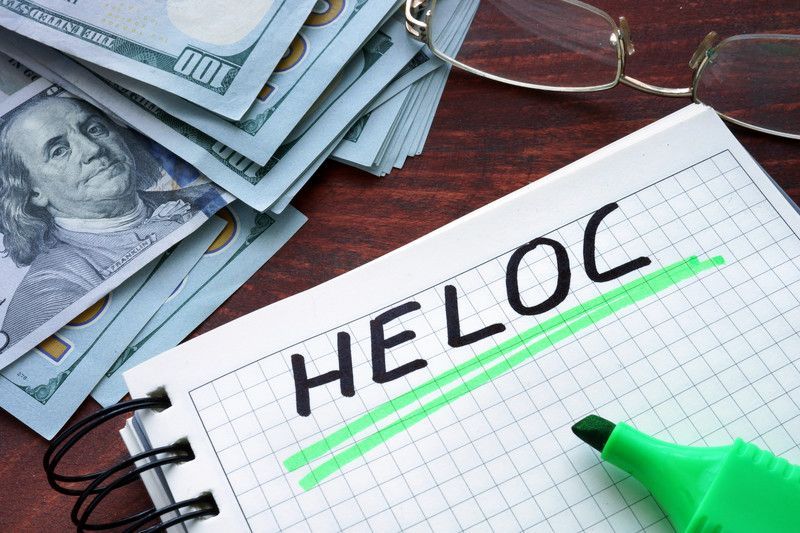
From Pandemic Lows to Today’s Highs: How Interest Rates Are Reshaping the Housing Market Video: https://youtube.com/shorts/S9k0tmj1rjA?si=vYLCe2kaZLAbRwxo In the midst of the COVID-19 pandemic, one silver lining for prospective homeowners was the record-low interest rates. Mortgage rates dipped to historic lows—some even under 3%—making homeownership more accessible and monthly payments more affordable than ever. Fast forward to today, and the story has drastically changed. A New Reality for Borrowers Today’s homebuyers are facing interest rates that have more than doubled since the pandemic era. With rates hovering between 6% and 7% in many cases, the dream of buying a home has become significantly more expensive. This shift impacts more than just the total cost of a home—it directly affects monthly mortgage payments, borrowing power, and long-term affordability. To put it into perspective: A $400,000 home at a 3% interest rate equals a monthly payment of approximately $1,686 (excluding taxes and insurance). That same home at a 7% interest rate jumps to about $2,661—a difference of nearly $1,000 per month. Fewer Buyers, More Hesitation As rates rise, so does buyer hesitation. Many potential homeowners who secured ultra-low rates during the pandemic are now reluctant to sell and buy again at higher rates. This has led to a decrease in housing inventory, further driving up home prices in many regions and putting added pressure on first-time buyers. Is It Still a Good Time to Buy? The answer depends on individual circumstances. While higher rates might deter some, others see opportunity—especially if home prices stabilize or decrease. Experts suggest focusing on long-term goals: buy when it makes financial sense, and consider refinancing down the road if and when rates drop. Bottom Line The contrast between today’s interest rates and those during the pandemic highlights a significant shift in the real estate landscape. Buyers must now be more strategic, budget-conscious, and informed than ever before. While the path to homeownership may look different, it remains possible—with the right planning and timing.

Stock Market vs. Real Estate - Choosing the Right Investment Path Video: https://youtube.com/shorts/A4aQtTK6tMw?si=tDhsd8zBcNYgwdJB Video Transcript: "Which is better: investing in the stock market or real estate? The stock market offers liquidity and the potential for high returns, but it can be volatile. Real estate provides tangible assets and steady income, yet requires more capital and management. Ultimately, the best choice depends on your financial goals, risk tolerance, and investment horizon." Article In the realm of wealth-building, two prominent avenues often come to the forefront: the stock market and real estate. Each offers unique opportunities and challenges, and understanding their nuances is crucial for making informed investment decisions. Stock Market: Liquidity and Accessibility Investing in the stock market provides a high degree of liquidity, allowing investors to buy and sell shares with relative ease. This flexibility is advantageous for those seeking short-term gains or needing quick access to funds. Additionally, the stock market offers a diverse range of investment options, from individual stocks to mutual funds and ETFs, catering to various risk appetites and investment strategies. Real Estate: Tangible Assets and Steady Income Real estate investment involves acquiring physical properties, which can generate consistent rental income and potential appreciation over time. This tangible asset class often appeals to investors looking for long-term stability and passive income streams. However, real estate requires significant upfront capital, ongoing maintenance, and can be less liquid compared to stocks. Making the Right Choice The decision between stock market and real estate investments hinges on individual financial goals, risk tolerance, and investment horizons. For those seeking liquidity and lower entry barriers, the stock market may be more suitable. Conversely, investors aiming for long-term growth and passive income might find real estate more aligned with their objectives.
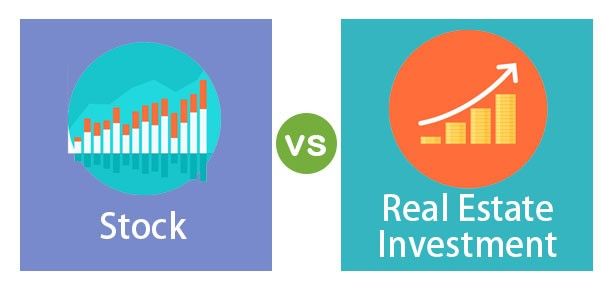
Stock Market vs. Real Estate - Choosing the Right Investment Path Video: https://youtube.com/shorts/A4aQtTK6tMw?si=tDhsd8zBcNYgwdJB Video Transcript: "Which is better: investing in the stock market or real estate? The stock market offers liquidity and the potential for high returns, but it can be volatile. Real estate provides tangible assets and steady income, yet requires more capital and management. Ultimately, the best choice depends on your financial goals, risk tolerance, and investment horizon." Article In the realm of wealth-building, two prominent avenues often come to the forefront: the stock market and real estate. Each offers unique opportunities and challenges, and understanding their nuances is crucial for making informed investment decisions. Stock Market: Liquidity and Accessibility Investing in the stock market provides a high degree of liquidity, allowing investors to buy and sell shares with relative ease. This flexibility is advantageous for those seeking short-term gains or needing quick access to funds. Additionally, the stock market offers a diverse range of investment options, from individual stocks to mutual funds and ETFs, catering to various risk appetites and investment strategies. Real Estate: Tangible Assets and Steady Income Real estate investment involves acquiring physical properties, which can generate consistent rental income and potential appreciation over time. This tangible asset class often appeals to investors looking for long-term stability and passive income streams. However, real estate requires significant upfront capital, ongoing maintenance, and can be less liquid compared to stocks. Making the Right Choice The decision between stock market and real estate investments hinges on individual financial goals, risk tolerance, and investment horizons. For those seeking liquidity and lower entry barriers, the stock market may be more suitable. Conversely, investors aiming for long-term growth and passive income might find real estate more aligned with their objectives.
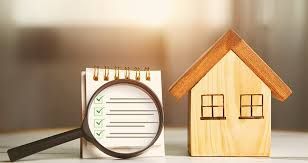
By Ralph Dibugnara By David McMillin March 24, 2025 Key takeaways Before you start looking for homes, take time to evaluate your finances and improve your credit score. There’s a big difference between meeting the minimum credit score requirement and showing your lender a credit score well above 750. Remember to account for the variable expenses of owning a home, which include insurance, property taxes, maintenance and repairs. While sellers still have the edge in most parts of the country due to limited inventory, buyers are gaining more bargaining power. Work with an expert real estate agent to develop a negotiation strategy and score a better deal on your first home. If you’re still renting your place, the thought of buying a home can feel pretty overwhelming. A recent TD Bank survey of first-time homebuyers found that 64 percent of people who have never owned a home are concerned about affordability due to high mortgage rates. Despite those worries, nearly half are working to save up for a down payment. If you’re one of them, read on for some money-smart moves that can put you on the path to successfully buying a home. House hunting tips for first-time homebuyers 1. Check your credit (and work on it) The higher your credit score, the better the interest rate on your mortgage. Pull your reports Thoroughly understand where your credit stands by pulling a free copy of your report at AnnualCreditReport.com. It’s not a one-and-done free ticket, either; the site lets you pull your report every week without paying anything. It’s important to note that your credit report may look different depending on the credit bureau. There are three main credit reporting bureaus in the U.S.: Experian Equifax TransUnion It’s wise to look at all of your reports because you never know which report a lender will analyze. “Look for any errors or past-due accounts that might have gone to collections,” says Ralph DiBugnara, president of New York City-based Home Qualified, an online resource for homebuyers. “These liabilities can create roadblocks when you apply for a home loan. If anything is amiss, contact the creditor to see if you can sort it out.” Fix and then monitor your credit In addition to contacting a bureau if you spot any mistakes, follow these steps to keep your credit in the best shape possible: Pay down your credit card balances: Most lenders like to see a credit utilization ratio of 30 percent or less, according to Lindsey Shores, business development manager with SchoolsFirst Federal Credit Union. “For many people, this number is something they have to plan for and work to pay down to achieve,” she says. If you’re over that number, try to pay down your balances. Pay your bills on time: Follow this step whether you’re trying to buy a house or not — you can make or break your credit by making your payments on time every month. Take advantage of free credit monitoring tools: Many banks have free credit monitoring tools built into their mobile apps, giving you the ability to check your credit score easily and more frequently. “You’ll get notified if your credit score changes, or if there’s suspicious activity on your report,” says DiBugnara. 2. Nail down your budget When you’re building a budget to narrow your search for properties, don’t just think about how much house you can afford, but how much in recurring costs you can handle once you’ve purchased your home. Consider these key items: Principal and interest: This will be the bulk of your monthly payment, and if you take out a fixed-rate mortgage, this chunk will never change over the course of the loan. Homeowners insurance: How much you’ll pay to protect the property can vary widely. If you’re buying in an area with higher risks for flood, wildfire or other severe weather, you’ll need to be prepared for higher, ever-increasing premiums. Property taxes: Your property taxes will look different depending on the location, and, in most cases, will increase as your home’s value increases and/or your local government needs to raise them for their budget. HOA fees: If you’re looking at condos or homes in a homeowners association, ask how much you’ll pay each month in HOA fees. If you’re looking at buildings with a gym, pool and other amenities, these can get very steep. In addition to these expected expenses, it’s a good idea to put aside some money regularly for maintenance and unexpected repairs. “As a rule of thumb, I tell clients to prepare to spend 1 percent to 3 percent of the value of their homes each year on house [expenses],” says Steve Sivak, a certified financial planner and managing partner of Innovate Wealth. You might need to set aside more if the home you end up buying is older, bigger or has maintenance-heavy amenities, such as a pool. 3. Consider your needs and wants Finding the ideal location and address can take more time than you expect, so begin scouting neighborhoods early in the process. “Drive and walk around that area at different times of the day and night,” says Bill Golden, a Realtor and associate broker with Keller Williams Realty Intown. “This will help you get a feel for what you like and don’t like.” Along with pinpointing the neighborhood, now is a good time to narrow down your preferences for the home itself by considering these essential questions: What type of house are you looking for? What can you compromise on? What are the dealbreakers? Are you willing to look at older properties that may require some updates, or do you want a move-in-ready property? Think about what you like and dislike about where you currently live — that can help inform your list of needs and wants. 4. Get finances in place Regardless of income level, you should be able to document to potential lenders that you have a stable source of earnings. “Your income and how much you earn monthly will be scrutinized by lenders, who will look for a two-year employment history and want to see consistent income — whether you’re receiving a salary, hourly pay or are self-employed,” says Tom Hecker, a loan officer with Cherry Creek Mortgage. If you’re self-employed, be ready for closer scrutiny than someone getting a salary or hourly wage. In terms of your liquid funds and overall financial health, in addition to reviewing your credit report, mortgage lenders typically look at your bank statements from the last two months when assessing your application. If you plan to make any deposits into your checking or savings accounts from other assets — such as a down payment gift — do it before that 60-day window. This gives the funds time to “season.” And it’s best to avoid opening new credit accounts or loans, or racking up more debt, at this stage, DiBugnara adds. All those activities could possibly ding your credit report. Learn more: How to save for a down payment Tips for finding the right mortgage 5. Comparison shop mortgage lenders At this point, you should know what monthly payment you’re comfortable with, what areas you can afford and how much you can put down. Now it’s time to shop for a mortgage. Consider these factors: Comparison shop: Compare mortgage rates from at least three different types of lenders, as well as different types of mortgages. What others have to say: Read customer reviews for lenders online to get a sense of what the experience is like with individual lenders. Interactions with the lender: Even “in this market, you can find competitive rates and service, but you want to pay close attention to lenders’ responsiveness and communication,” says DiBugnara. The mortgage terms: It’s also a good idea to focus on not just the rates lenders quote you but also all the mortgage terms. What are the late fees? What are the estimated closing costs? Is there a prepayment penalty? If you’re able to get a mortgage with the bank where you already have accounts, will you get a better deal? Sometimes, it makes sense to choose a loan with a slightly higher rate if the other terms are more favorable overall. Learn more: Different types of mortgage lenders 6. Get preapproved Once you settle on a lender, get preapproved for a mortgage. This will require documentation of your income and finances, and organizing your paperwork in advance can help the process run smoothly. It will also prepare you for mortgage underwriting, which will require similar documentation. Unlike prequalification, which is a projected loan size you’ll be able to get, a preapproval is an official letter from a lender stating exactly how much it will loan to you. A preapproval will put you in a much stronger position when you’re making an offer on a house, and it will ease the process once your offer has been accepted and you’re actually applying for your loan. Preapprovals usually expire after 90 days, says DiBugnara, so ask your lender how long yours will be good for. If you’re a first-time homebuyer with significant debt or so-so credit, you might want to apply for a preapproval as soon as possible to identify issues to fix. “Once you have a preapproval in place, keep sticking to your budget and savings plan and continue to pay all debts on time,” says Hecker. “Try not to make any extraordinary purchases or take on extra debt, either.” 7. Look for down payment assistance There are many first-time homebuyer and down payment assistance programs, including at the local, regional and national level, that can help cover your down payment or closing costs. These aren’t for everyone, though. To score some down payment assistance, be prepared for these eligibility requirements: Earn less than a specific amount per year, which typically varies by location and household size Purchase a home that does not exceed a maximum amount, which can vary based on targeted and non-targeted areas Take out a loan offered in conjunction with the state housing authority These programs are typically limited to borrowers with an income below a certain level (based on location), and can impose a cap on the home’s price, too. Keep in mind that many of these programs have terms that stipulate you must live in the home for a certain period of time to qualify for forgiving the loan and/or avoiding a recapture tax penalty that can come into play if you sell the property earlier than expected and earn a profit. Often, your loan officer can provide info on the available programs and what you might be able to pair with your mortgage. Tips for buying your first home 8. Work with a real estate agent After you have your financing squared away and a preapproval letter in hand, your next step as a first-time homebuyer is to hire a real estate agent or Realtor. An experienced real estate agent who knows the area you’re looking to buy in especially well can advise you on market conditions and whether homes you want to make offers on are priced properly. Your agent can also identify potential issues with a home or neighborhood you’re unaware of, and go to bat for you to negotiate pricing and terms. You can start by asking friends, relatives or co-workers for referrals. Interview several prospective agents to get a feel for who may be a solid match in terms of personality and expertise. “Don’t just pick [an agent] blindly — make sure it’s someone who works in the general area you’re looking in and whom you feel comfortable with,” says Golden. Offerings “come up every day, and a good Realtor will be on top of that and get you to see new listings as soon as they become available.” 9. Negotiate with the seller Even when you see the home of your dreams, don’t be afraid to negotiate the price with sellers. While it’s difficult in red-hot real estate markets, some areas of the country are beginning to see more homes sell for less than the asking price. As you work to get a good deal, consider these bargaining tactics: Use comps to justify a lower offer. A low offer can offend a seller, so work with your agent to look at comps that justify why a seller should consider your terms. Did a nearby property with an additional parking spot recently sell for the same amount? Are there other similar homes with nicer amenities listed for less? Back up your bargaining with evidence from the rest of the market. Ask for concessions based on the home inspection report. Is some of the electrical wiring incorrect? Does the furnace seem like it’s nearing the end of its lifespan? Are the windows going to need to be replaced soon? If your home inspector uncovers some minor issues with the home, don’t be afraid to ask for concessions that will require the seller to cover a chunk of your closing costs. And if the inspector uncovers some major issues, be aggressive in your negotiations — and don’t be afraid to walk away from the deal altogether. Request a different closing timeline. Negotiating your home purchase isn’t just about money; it’s also about time. Depending on your needs, you can ask the seller for a closing date that gives you more or less time to get the deal done. For example, if you really want to avoid paying another month of rent, don’t be afraid to request that the seller be prepared to move out earlier. 10. Draw up a contract When you find a home and prepare to make an offer, work with a real estate attorney to spell out any conditions or situations that will allow you to walk away from the deal. These are known as contingencies, and they often include: Major issues with a home inspection Mortgage application denial A lower appraisal than the offer price If these terms are spelled out in writing with deadlines, you’ll have an out if the transaction doesn’t go as planned — and get your earnest money deposit back, too. Bottom line For a first-timer, buying a home can feel overwhelming and endless. But breaking down the process into steps and tackling them one at a time can help you stay focused and get the job done. Doing your research in advance and working with a trusted real estate agent can help you stay on track throughout the process. Keeping your finances steady and limiting other big-ticket purchases can also help you qualify for a loan and get into your first home.
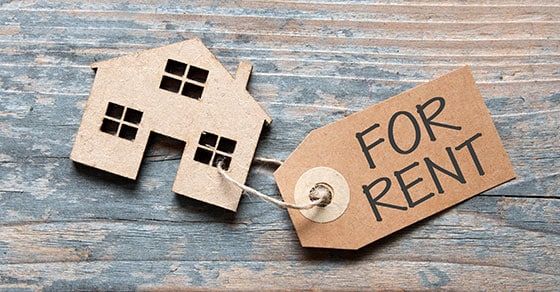
By Ralph Dibugnara March 6, 2025 By: Paul Centopani February 26, 2025 https://themortgagereports.com/32667/mortgage-rates-forecast-fha-va-usda-conventional Mortgage rate forecast for next week (Feb. 24-28) Mortgage rates came down for the fifth straight week. The average 30-year fixed rate mortgage (FRM) declined to 6.85% on Feb. 20 from 6.87% on Feb. 13, according to Freddie Mac. “The 30-year fixed-rate mortgage has stayed just under 7% for five consecutive weeks and in that time has fluctuated less than 20 basis points. This stability continues to bode well for potential buyers and sellers as we approach the spring homebuying season,” said Sam Khater, chief economist at Freddie Mac. Will mortgage rates go down in March? “With consumer confidence plummeting and a great deal of uncertainty and volatility in the market as the Trump Administration continues to promise high tariffs and mass deportations, there’s been a flight to safety in the bonds market.” -Rick Sharga, CEO at CJ Patrick Company Mortgage rates fluctuated significantly in 2023, with the average 30-year fixed rate going as low as 6.09% and as high as 7.79%, according to Freddie Mac. That range narrowed in 2024, with a spread of 6.08% to 7.22%. Find your lowest mortgage rate. Start here (Feb 27th, 2025) With the economy possibly heading into a recession, we may have already seen the peak of this rate cycle. But if inflation rises, mortgage rates could uptrend. Of course, interest rates are driven by many factors and notoriously volatile, so they could change direction any given week. Experts from Realtor.com, First American, Home Qualified and CJ Patrick weigh in on whether 30-year mortgage rates will climb, fall, or level off in March. Expert mortgage rate predictions for March Ralph DiBugnara, president at Home Qualified Prediction: Rates will moderate “The market is starting to slowly but steadily see some small movement of mortgage rates coming down. I believe March will be around the same averages we have seen through February. Historically, we would see the greatest drop in mortgage rates come during the spring buying season. If inflation ticks down and consumer spending slows along with increased seasonal home buying, we should see a significant reduction in interest rates.” Hannah Jones, senior economic research analyst at Realtor.com Prediction: Rates will moderate “Mortgage rates are likely to remain high through March. We may see some volatility as markets weigh the implications of the Trump administration’s various economic proposals and policy actions. PCE inflation data could influence rates, especially if it comes in higher-than-expected. Overall, we expect both inflation and mortgage rates to be higher for longer than initially expected, but the path is not yet clear due to considerable policy uncertainty.” Rick Sharga, CEO at CJ Patrick Company Prediction: Rates will moderate “With consumer confidence plummeting and a great deal of uncertainty and volatility in the market as the Trump Administration continues to promise high tariffs and mass deportations, there’s been a flight to safety in the bonds market, driving down bond yields. Because of those lower yields, we’re seeing what is probably a temporary dip in mortgage rates, which could reverse course suddenly if the next inflation report comes in higher than expected. But for now, it looks like rates for a 30-year fixed-rate loan will rest somewhere between 6.75-7.0% for at least the next few weeks, while the market settles into its new reality.” Sam Williamson, senior economist at First American Prediction: Rates will moderate “With a strong U.S. labor market and inflation running hotter than anticipated, the Federal Reserve is likely to hold off on cutting interest rates at its upcoming March meeting. This limits downward pressure on 10-year Treasury notes, which mortgage rates tend to follow. Consequently, we expect mortgage rates to remain stable in March, fluctuating in the upper 6% range.”
let us connect you to
investors in real estate
Looking to build a home, buy a fixer upper
& repair or invest in a real estate project long term?
We can connect you to experts who have loan products.

